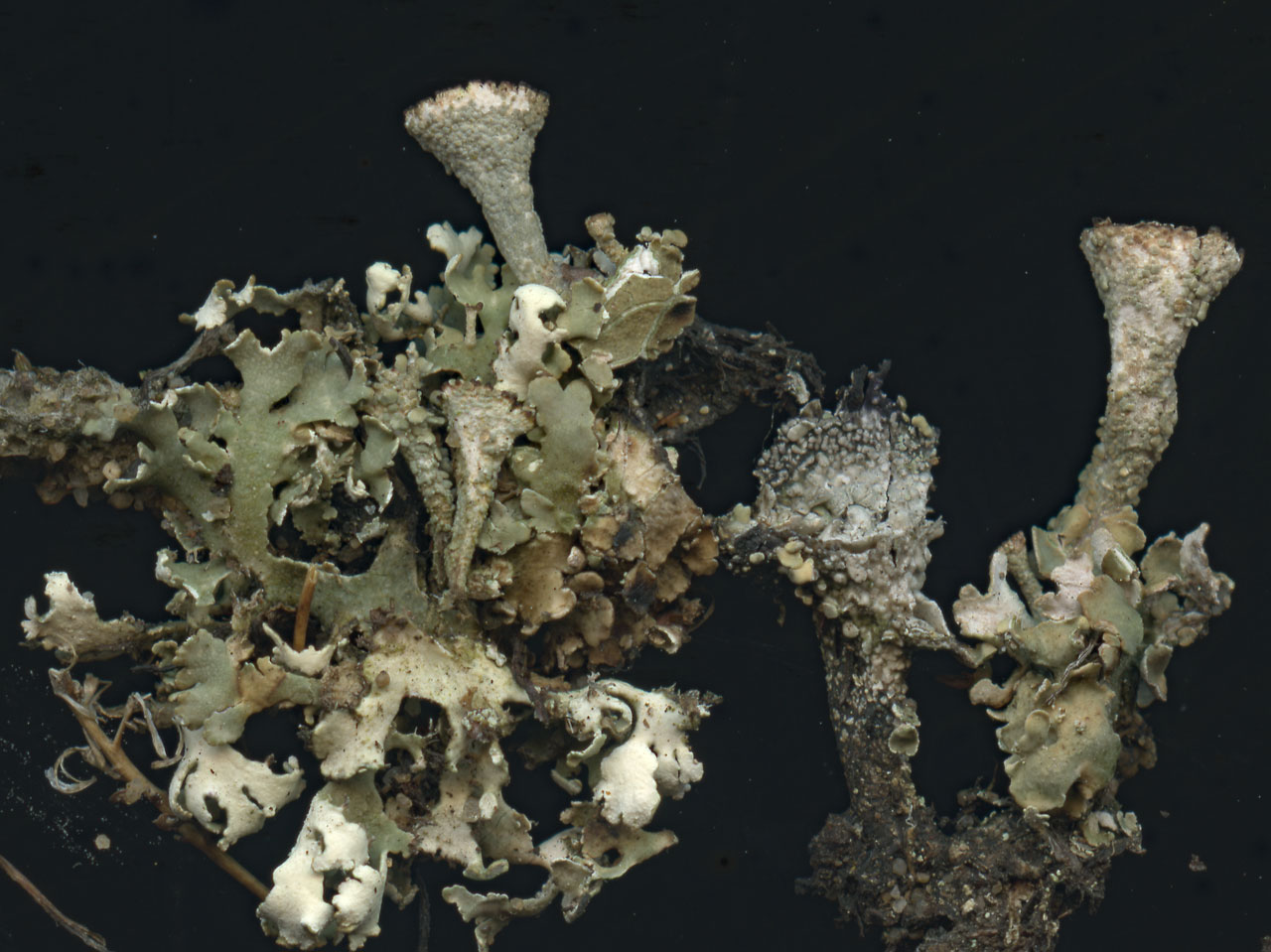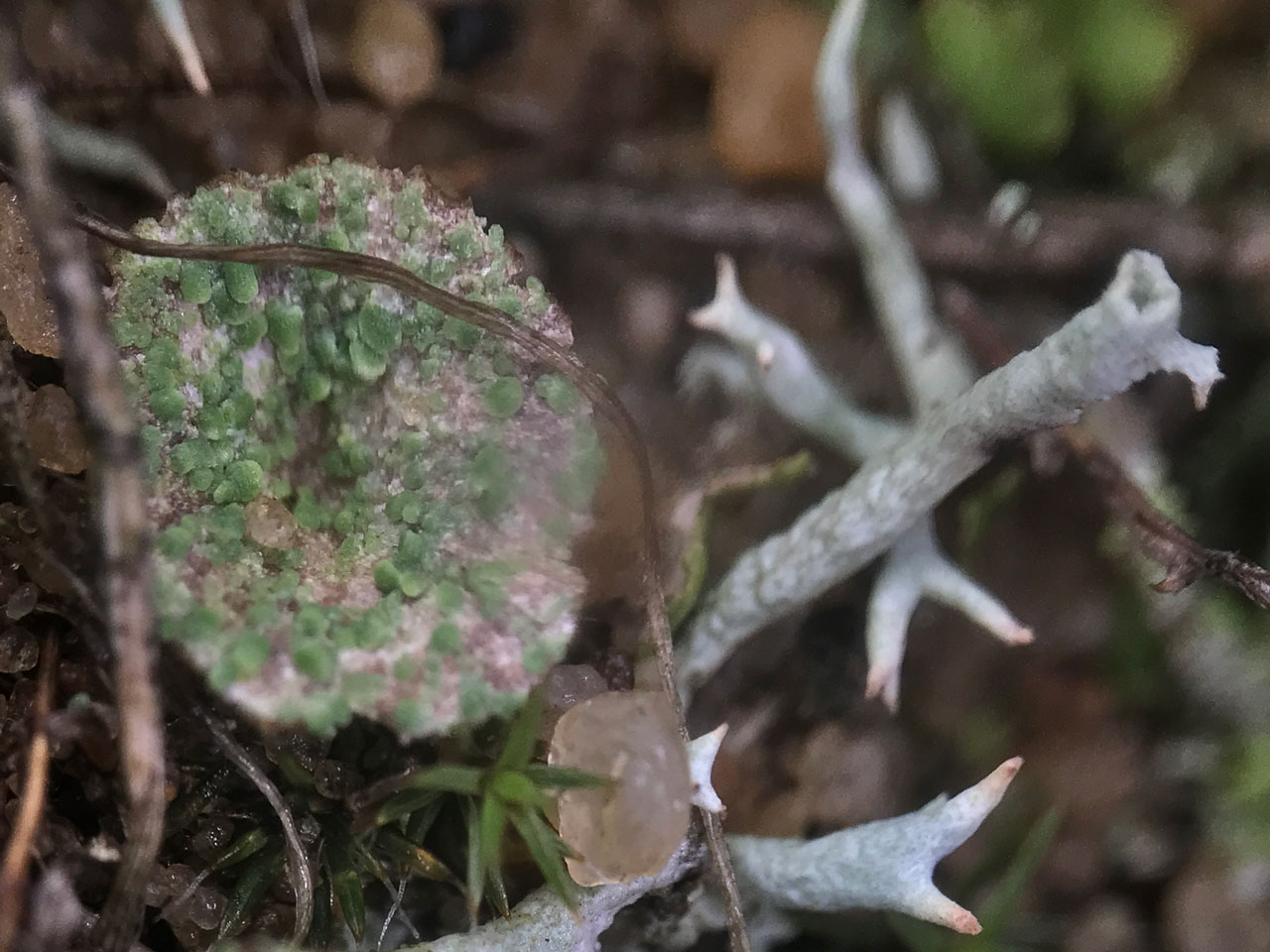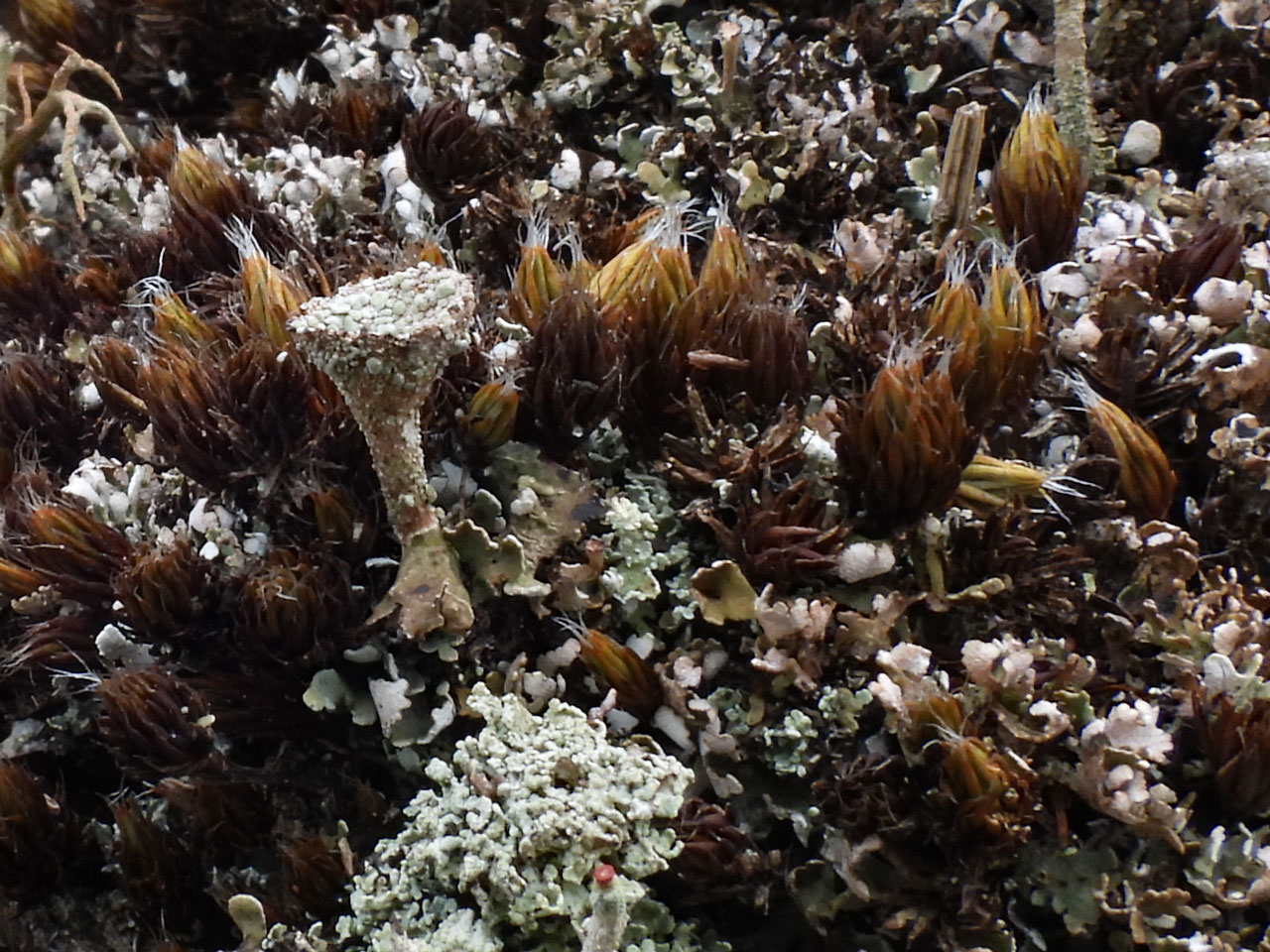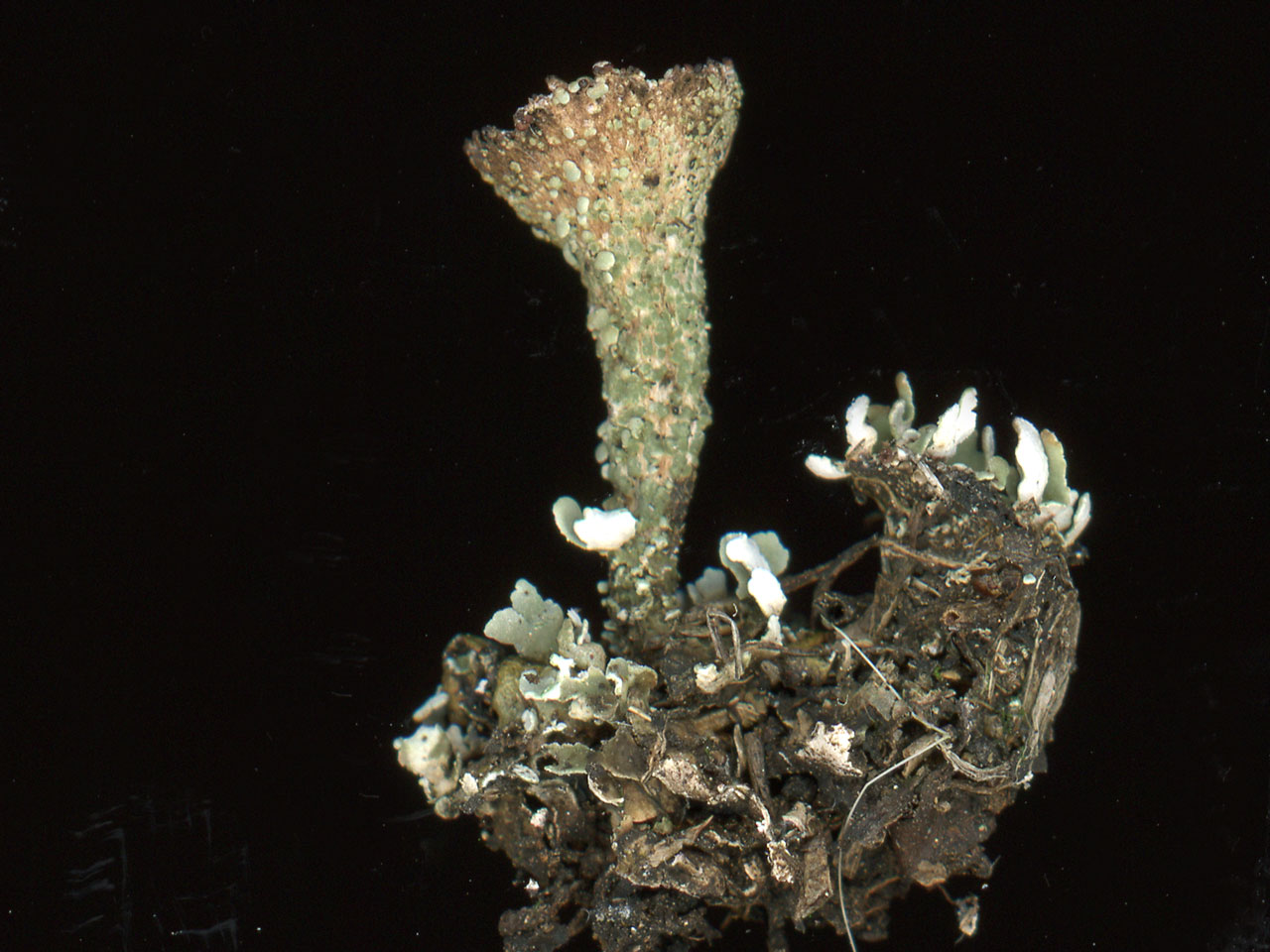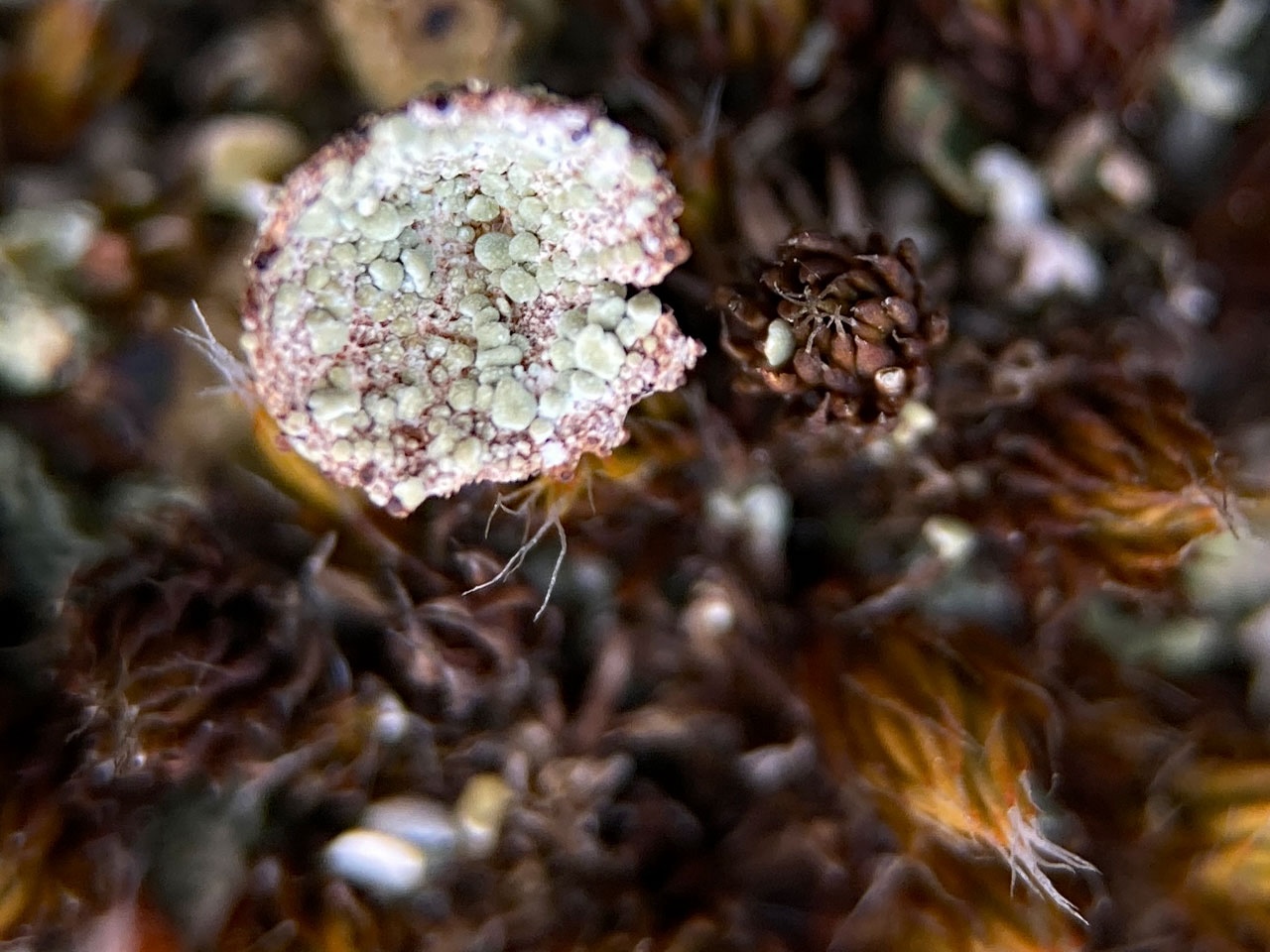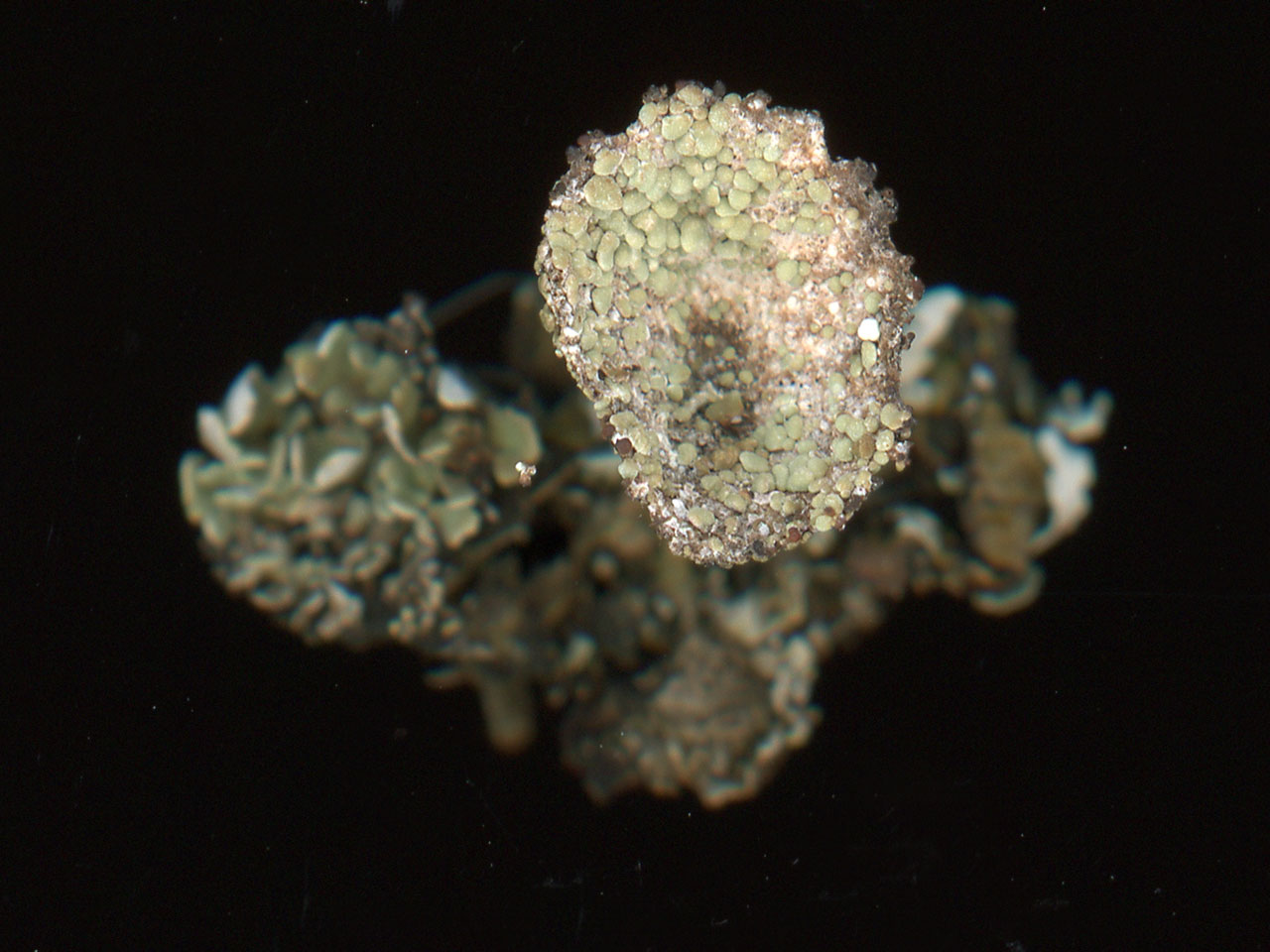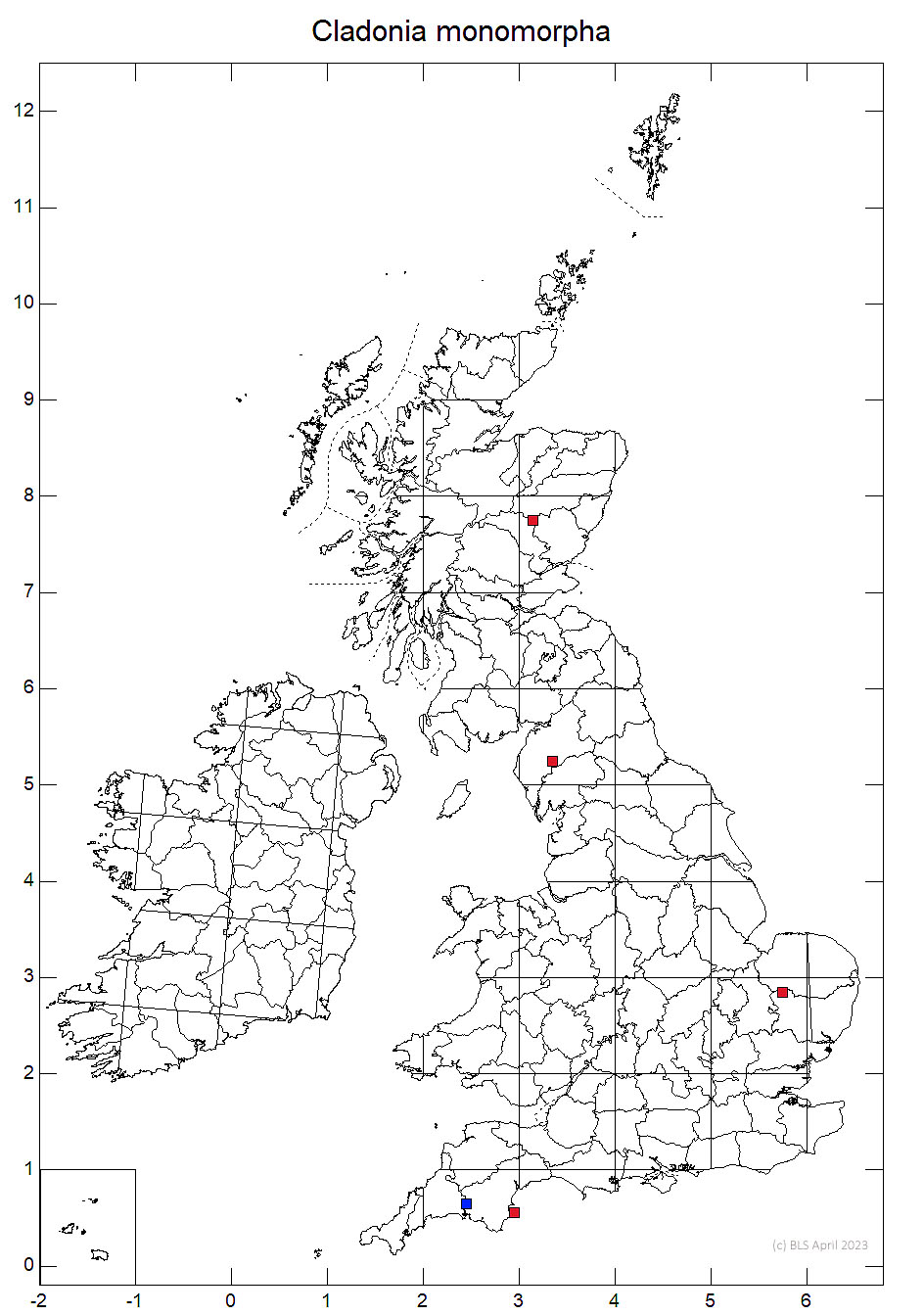Cladonia monomorpha is a Pixie Cup very similar to Cladonia pyxidata, but found on acid low productivity heaths, in contrast to the neutral to base rich habitats of Cladonia pyxidata. Cladonia monomorpha is typical of heaths on windblown sand (cover sands) in the north European plain, especially in The Netherlands. A controversial taxon, not accepted as separate from Cladonia pyxidata by some authors and its occurrence in Britain needs clarification. The earlier records from metal mines potentially could be the schizidiate morph of Cladonia humilis but a find in lichen rich cover sand heath in The Brecklands is a good match to the isotope of Cladonia monomorpha pictured at this link. Further good material has since been found on parched vegetation on shallow soil over basalt in eastern Scotland.
As well as the habitat, Cladonia monomorpha is compared to Cladonia pyxidata by Aptroot et al (2001) as having larger bullate plates on the cups both on the inside and outside with the squamules on the outside convex. The primary squamules are not prostrate with flat margins, but more or less erect with narrowly recurved margins. The basal squamules of Cladonia pyxidata are typically small and dissected, while those of Cladonia pocillum are appressed to the substrate.
Cladonia monomorpha was included by James (2009) as a possible further British species, but Ahti & Stenroos (2013) considered this a synonym of C. pyxidata. The original British specimens identified as C. monomorpha have conspicuous well-developed, tightly packed ± vertically aligned squamules, the upper surface of which is a distinctive bright green, especially when moist. Both records are from metal-rich (copper) sites in the Lake District and S. Devon (Tavistock). Their status needs further examination; the description of the squamules as bright green suggests the strong possibility they could have been the schizidiate morph of Cladonia humilis. Material similar to C. monomorpha as described from sandy heathlands in The Netherlands, however, has since been found in similar sandy lichen heath in The Brecklands. Latterly it has also been found on parched vegetation in thin soil over basalt in eastern Scotland. Unlike the copper mine taxa, these have typical olive-brown, not bright green, squamules. The main distinction from Cladonia pyxidata or Cladonia pocillum appears to be the habitat along with the large non-appressed squamules. Neither of these similar species are found in low productivity acid habitats, and potentially Cladonia monomorpha may be an ecological morph of Cladonia pyxidata.
Aptroot et al (2001) give the differences with Cladonia pyxidata as follows: Cladonia monomorpha can be most readily separated by the much larger bullate plates on the cups both on the inside and outside with the squamules on the outside convex. The primary squamules are not prostrate with flat margins, but more or less erect with narrowly recurved margins. The colour of the thalli is dark green to brown when fresh, not greenish grey to brownish grey.
Original reports were from copper mine sites, but these likely are errors for the schizidiate morph of Cladonia humilis and there is another record from montane habitat. In the Netherlands the taxon is restricted to low productivity acid habitats, especially heaths on inland sand dunes (cover sands). This is in contrast to the very similar Cladonia pyxidata, which is absent from strongly acid habitats in Britain. Recently, however, some Cladonia monomorpha like material was found on reactivated cover sand habitat in The Brecklands, growing in similar lichen rich habitat to that in the Netherlands, including a large population of Cladonia zopfii in its only known east of England site. Cladonia monomorph, however, has not been found during an intensive survey of lichen rich acid heathland in the New Forest in the south of England, so the occurrence of this taxon in acid habitats appears rare in Britain. A further find of a substantial population in parched open vegetation over basalt in lowland eastern Scotland also represents a similar habitat to that of the Netherlands and suggests a strongly sub-oceanic distribution.

A few scattered records across Britain. Confirmed records from West Suffolk and West Lothian.
Britain: not evaluated, but if recognised as a taxon, then probably rare and threatened
Ahti, T. & Stenroos, S. (2013). Cladoniaceae. In: Ahti, T., Stenroos, S., & Moberg, R. (eds), Nordic Lichen Flora 5: 1–117.
Aptroot, A., Shipman, H. J. M. & van Herk, C. M. (2001) Cladonia monomorpha, a neglected cup lichen from Europe. Lichenologist 33: 271-283. Link
James, P.W. (2009). Cladonia. In: Lichens of Great Britain and Ireland(Smith, C.W., Aptroot, A., Coppins, B.J., Fletcher, A., Gilbert, O.L., James, P.W. & Wolselsey, P.A. eds): 309–338. London: British Lichen Society.
Pino-Bodas, R., Sanderson, N., Cannon, P., Aptroot, A., Coppins, B., Orange, A. & Simkin, J. (2021). Lecanorales: Cladoniaceae, including the genera Cladonia, Pilophorus and Pycnothelia. Revisions of British and Irish Lichens 19: 1-45. Link
Text by N A Sanderson, based Pino-Bodas et al (2021)
